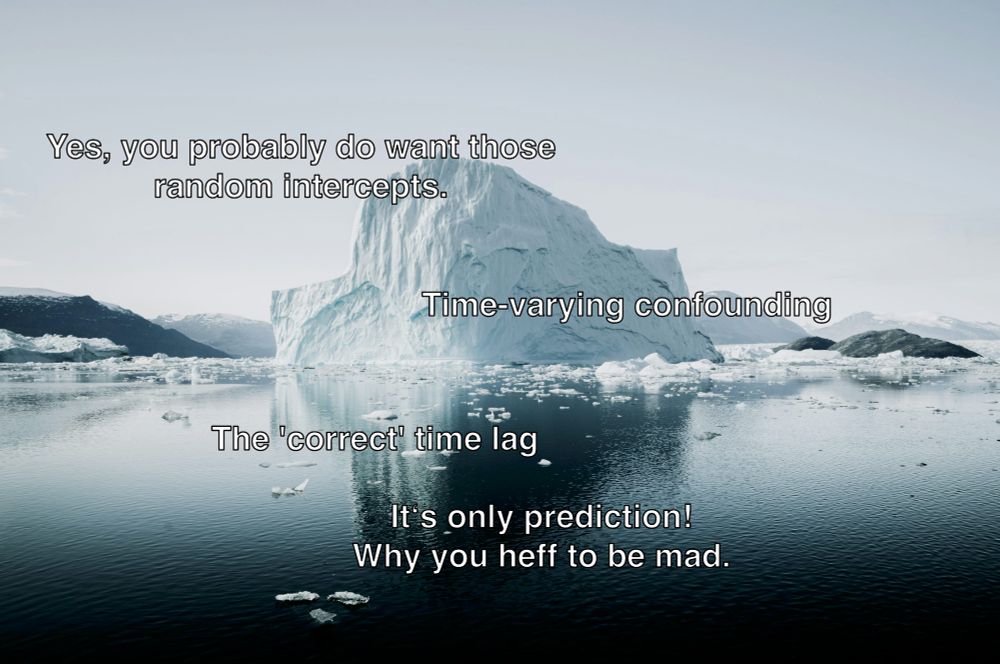Dr. Natalia Van Doren
@nataliavandoren.bsky.social
540 followers
490 following
33 posts
Clinical scientist focused on #DigitalMentalHealth, #SubstanceUse, & #HealthEquity | Postdoc @UCSFPsychiatry | Passionate about innovative methods and increasing access to care | she/her | Twitter: @nataliavandoren
Posts
Media
Videos
Starter Packs
Reposted by Dr. Natalia Van Doren
Reposted by Dr. Natalia Van Doren
Reposted by Dr. Natalia Van Doren
Vera Vine
@veravine.bsky.social
· Nov 20
Reposted by Dr. Natalia Van Doren
Julia M. Rohrer
@dingdingpeng.the100.ci
· Jun 25

Reviewer notes: So you’re interested in “lagged effects.”
In some fields, researchers who end up with time series of two variables of interest (X and Y) like to analyze (reciprocal) lagged effects between them. Does X affect Y at a later point in time, and d...
www.the100.ci
Reposted by Dr. Natalia Van Doren
Reposted by Dr. Natalia Van Doren
Reposted by Dr. Natalia Van Doren
Max Kozlov
@maxkozlov.bsky.social
· Jun 6

Trump preparing large-scale cancellation of federal funding for California, sources say | CNN Politics
The Trump administration is preparing to cancel a large swath of federal funding to California, an effort which could begin as soon as Friday, according to multiple sources.
www.cnn.com
Reposted by Dr. Natalia Van Doren
Talia Lerner
@talialerner.bsky.social
· Apr 29
Reposted by Dr. Natalia Van Doren
Reposted by Dr. Natalia Van Doren
SADCAT Lab IU
@sadcatlab.bsky.social
· Feb 13



